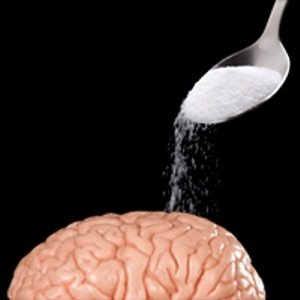It’s a folk saying: Less is more… It appears one, single gene regulates our preference and craving for sugar. Could suppressing this gene’s activity help us reduce consumption of excess sugar?
Mouse studies have suggested that’s a possibility. So researchers at University of Nottingham (UK) decided to data-mine the master health information base in the UK to see if there was a correlation in humans…
“Excess calories from sugar are an established contributor to obesity and type 2 diabetes,” study leader Dr. Peter Aldiss observes. “In the UK, we consume 9 to 12 percent of our dietary intake from free sugars, such as sucrose, with 79 percent of the population consuming up to three sugary snacks a day.”
In fact, obesity and the many ills it precipitates has become a genuine epidemic across the Western world.
Least-invasive way?
Simply suppressing the activity of the so-called SI (Sucrase-Isomaltase) gene could be a super-simple, non-invasive way to convince the body to crave less sucrose – the kind of sugar most com-monly added to processed foods.
Researchers headquartered at the University of Nottingham wanted to try to pull some pertinent information out of the massive 134,766 member UK BioBank and a smaller but equally diverse 6,000 member Greenland data set.
What they found
The team started out by sorting our folks from the master data bases who possessed a deficient or missing SI gene. Then, they looked at other aspects of the subjects’ overall heal profiles to see if they could find correlations with sugar-related conditions.
“[O]ur study suggests that genetic variation in our ability to digest dietary sucrose may impact not only how much sucrose we eat, but how much we like sugary foods,” Aldiss reports.
The takeaway
“These findings suggest that […] [i]n the future, understanding how defects in the SI gene act to re-duce the intake, and preference, of dietary sucrose will facilitate the development of novel thera-peutics to help curb population-wide sucrose intake to improve digestive and metabolic health,” Aldiss predicts.
My take
That’s great news, if further study confirms and refines the idea in the direction Aldiss hopes it will take.
Alas, it may take years before any new drug or other type of therapy designed to safely suppress the SI gene is developed and approved for use in humans.
Nevertheless, in combination with other recent, promising research into the causes and treatments of obesity, we could start seeing results much sooner!
~ Maggie J.


